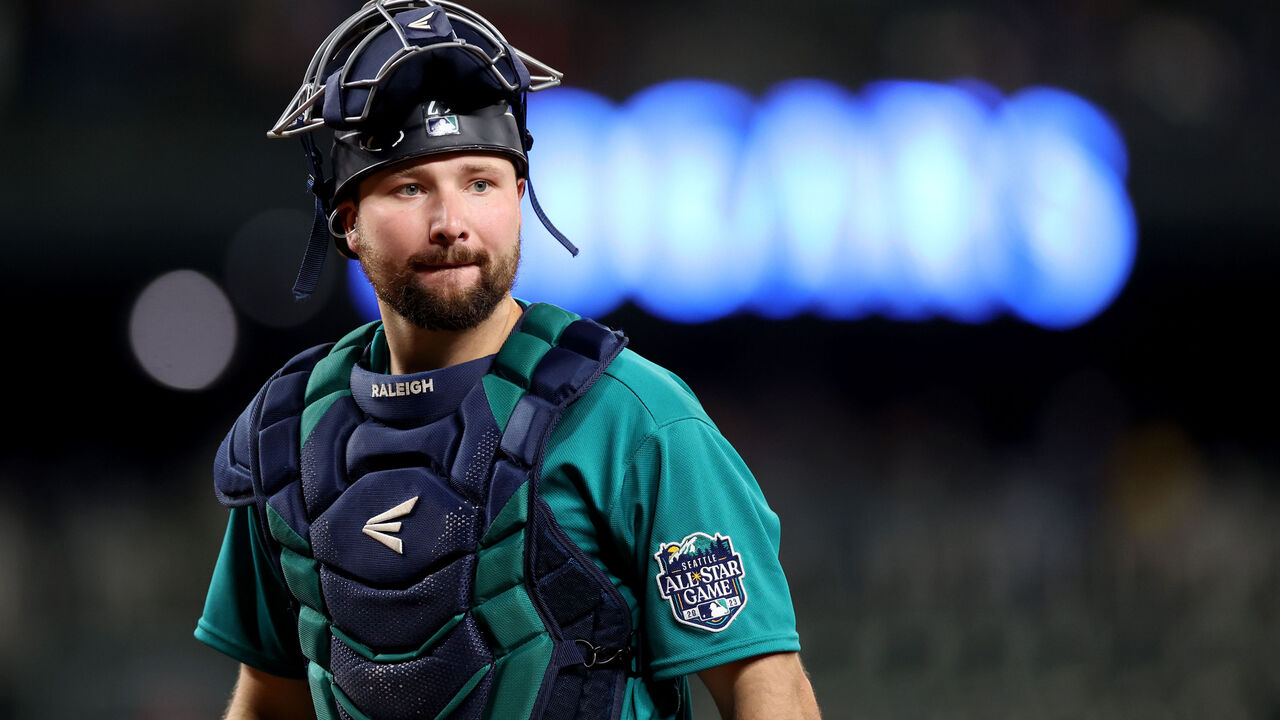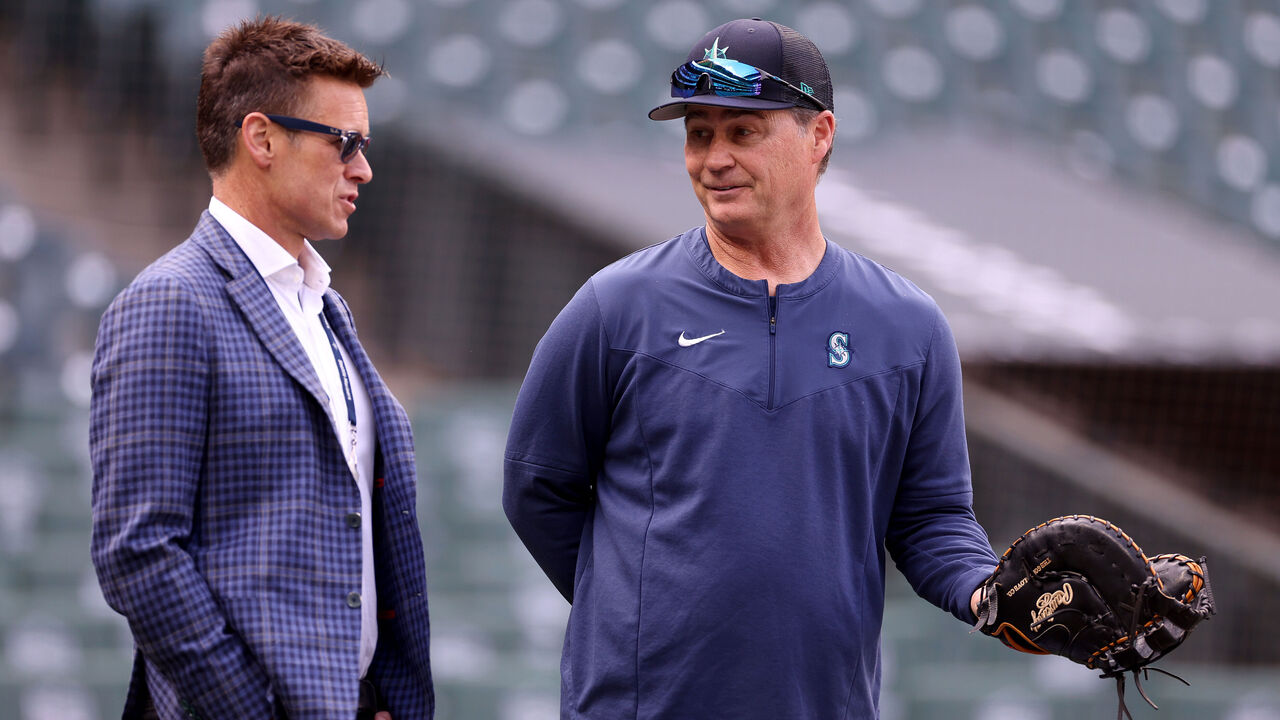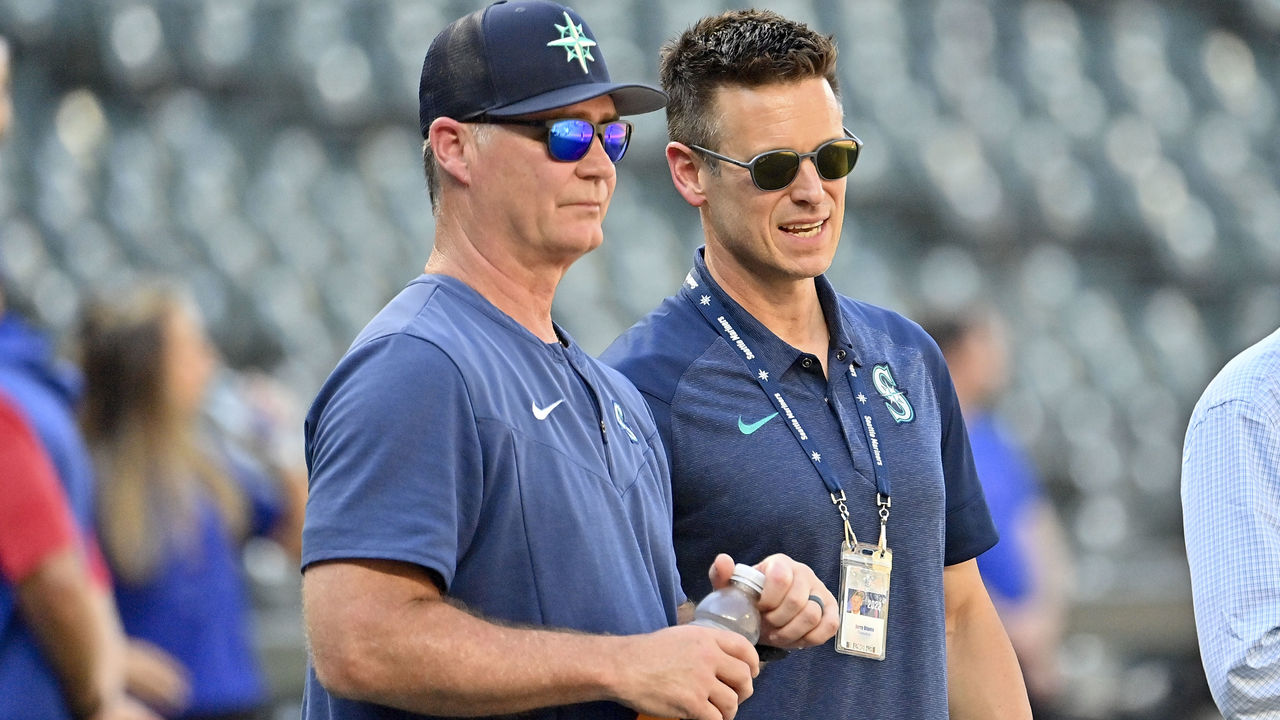Win 54%: Is Dipoto's bar for the Mariners too low or a worthy objective?
The Mariners had a rough end to their season, and now drama's trickling into their early offseason.
Seattle missed the postseason by a game as it struggled late, winning 13 of its final 30 games and going 4-6 in its last 10.
In the aftermath, disappointed Mariners catcher Cal Raleigh caused a stir when he criticized the organization:
We've got to commit to winning, we have to commit to going and getting those players you see other teams going out and getting - big-time pitchers, getting big-time hitters. We have to do that to keep up.
We've done a great job of growing some players here and within the farm system, but sometimes you've got to go out and you have to buy. That's just the name of the game.
The comments resonated with Mariners fans, who are running out of patience. Seattle's made two playoff appearances this century and one trip in eight seasons under the present leadership group.
The Mariners were buyers in summer 2022, notably adding starting pitcher Luis Castillo at the deadline (FanGraphs gave the club a 77% playoff chance at the time of the trade), and made the ALDS. This year, they elected to become an opportunistic deadline seller, trading closer Paul Sewald to the Diamondbacks. The Mariners were five games back and in third place in the AL West at the deadline, with 18.8% playoff chances, according to FanGraphs. They finished with 88 wins and a .543 winning mark.
As the wild-card round began Tuesday without Seattle, Mariners president Jerry Dipoto spoke to the media and explained his long-term vision. One of the game's most frequent dealmakers, he asked for patience, and explained why the club wasn't willing to go all-in, preferring, ostensibly, to keep young players and prospects and maximize long-term potential.

"If you go back, and you look in a decade, those teams that win 54% of the time always wind up in the postseason. And they more often than not wind up in the World Series. So there's your bigger-picture process," Dipoto said. "Nobody wants to hear: 'The goal this year is we're going to win 54% of the time.' Because one year you're going to win 60%, and another year you're going to win 50%. But over time, that type of mindset gets you there."
Despite making the playoffs last year, and playing in the No. 12 media market, Seattle's payroll ranked 18th in the majors this year. (Admittedly, payroll level is more of a question for ownership.)
And perhaps Dipoto was speaking to ownership, as some speculated, trying to make a case for continued patience. He's fallen short of his goal of winning at a 54% clip, with a 51.6% winning mark over eight seasons at the helm in Seattle.

Regardless, to many fans, the stated goal of trying to win an average of 54% of games over a decade is far too low a bar to clear.
T-shirts are already being printed:
This T-Shirt is actually doing the fans a favor!
— simplyseattle (@simplyseattle) October 4, 2023
Available NOW: https://t.co/w7VMUZfU8Q pic.twitter.com/poyEmGnBKT
On Thursday, after blowback from fans and media, Dipoto clarified to Maura Dooley of Seattle Sports that the club's goal "isn't to be mediocre."
"Our goal is to win championships. That's what I was trying to say," he said. "I wish I could hit reset and try again but that moment is gone."
But there was no walking back of the 54% long-term target.
Is there legitimacy tied to a 10-year goal of a .540 winning mark? Does Dipoto's vision have merit?
Over the last 10 years of completed seasons, including postseasons, these are the teams that averaged a .540 winning percentage or better:
- Dodgers
- Yankees
- Cardinals
- Guardians
- Astros
That's it. That's the list.
Turns out, .540 is actually a high bar to clear over an extended period in the zero-sum game that is MLB, a sport where no one player - like an NFL quarterback or NBA star - can dominate usage.
Further, those five teams listed accounted for three World Series titles in that span, and nine of 20 World Series appearances. Over the last decade:
- The Dodgers made the postseason every year, won a World Series, and lost two others
- The Yankees made seven playoff trips (but haven't made the World Series since 2009)
- The Astros made the playoffs seven times, won two World Series, and lost two others
- The small-market Guardians made six playoff trips, reaching the 2016 World Series
- The Cardinals made seven postseason trips, winning one NL pennant
Dipoto discussed the variance of averaging 88 wins per year over a decade - there will be spike seasons and more postseason opportunities. And he's not alone in his preference to try and sustain success over a long period versus all-in efforts.
While most GMs won't articulate such thoughts publicly, few are willing to go all-in on any one season and would rather spread risk. After all, at this year's trade deadline, only three teams had double-digit World Series chances at FanGraphs: the Braves (25.5%), Dodgers (13.1%), and Rays (11.5% and swept out of the wild-card round).
In the expanded playoff era, it's rare for a team to have 20% or better World Series chances at the deadline. Only two consensus top 100 prospects were dealt at this year's deadline. In this era, the general goal is to try and make as many postseason trips as possible and enjoy as many rolls of the playoff dice as possible. For instance, the Guardians were a game back of the Twins this deadline and also elected to sell like the Mariners.
Executives - and owners - are in part responding to an incentive: MLB's expanded playoff field.
There's less incentive to be truly great because a high-80s win total will often be good enough for a wild-card spot. Yes, a first-round bye is preferable, but even this summer in the tightly contested AL East, the Orioles and Rays only made marginal deadline upgrades. Many are beginning to view the postseason for what it truly is: a random crapshoot.

One team did go all-in this deadline: the Angels. They were trying to make the most of their last few months rostering Shohei Ohtani, ended up missing the playoffs, and are now facing a barren farm system and bleak future.
In fact, Dipoto said clubs asking, "What do we have to do to win the World Series this year?" are doing themselves a disservice. "You might be laying in the mud and can't get up for another decade" based on that approach, he added. "So, we're actually doing the fan base a favor in asking for their patience to win the World Series."
Now, certainly no Mariners fan wants to be told Dipoto's doing them a favor. And there are counterarguments to this position.
With so many executives thinking this way, and operating in the same manner, there's potentially an opportunity to zig when everyone's zagging. Perhaps the trade market for veteran stars is undervalued with everyone hugging prospects.
Moreover, Phillies president Dave Dombrowski has had success trading the future for right now as one of the game's more all-in executives. He's won two World Series titles (Marlins in 1997, Red Sox in 2018) but he's also jumped from organization to organization, often depleting farm systems. Last year, the Phillies advanced to World Series after they won - wait for it! - 54% of their games in the regular season.
Of course, even if .540 is a logical, worthy goal, having a plan and executing it are two different things. As mentioned, Dipoto owns a .516 winning percentage with one playoff appearance and one playoff series win in eight full seasons with the Mariners.
Remember: Margins are extremely slim in MLB, and averaging a .540 mark over the last decade resulted in a majority of seasons (37) ending in playoff appearances, and very likely a World Series appearance or two during a 10-year run. Also remember: Executives rarely get to execute 10-year visions.
So, while the percentage Dipoto articulated might have sounded like a low bar to clear, it's actually rarefied baseball air. His logic isn't faulty, but patience is being tested in Seattle, and Dipoto's running out of time.
Travis Sawchik is theScore's senior baseball writer.